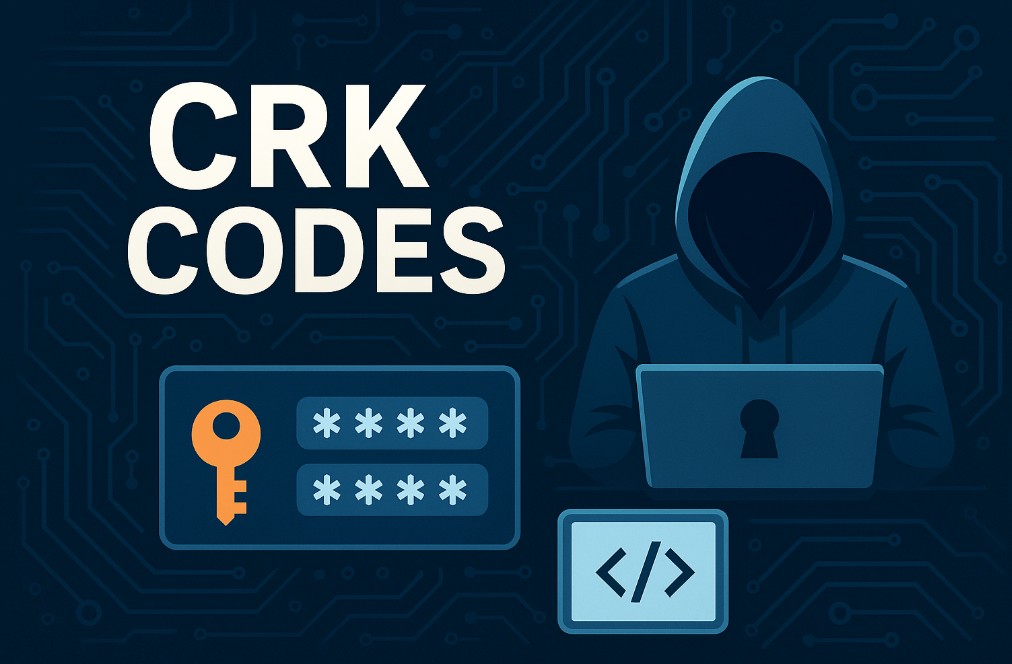Ultimate Guide to CRK Codes

In today’s tech-driven world, software is the backbone of countless industries. With this dependence comes the challenge of access and affordability. Enter crk codes, a controversial yet widely discussed method of bypassing software protections. From software enthusiasts to cybersecurity experts, everyone seems to have an opinion. But what are CRK codes, and why do they matter?
What Are CRK Codes?
CRK codes are unauthorized serial keys, patches, or modifications designed to bypass software licensing or digital rights management (DRM) protections. They essentially allow users to use premium software without paying for it. These codes are typically shared online, often through forums or shady websites, targeting popular programs like Adobe Creative Suite, Microsoft Office, or expensive industry tools.
How CRK Codes Work
At a technical level, CRK codes manipulate a program’s executable files. Here’s how:
- Serial Key Generation: Some CRK codes use key generators (keygens) that produce fake but working product keys.
- Patching Executables: Others alter the program’s binary code to disable license verification.
- Bypassing Online Checks: Advanced cracks reroute or fake server verification processes.
Tools like OllyDbg, x64dbg, and IDA Pro are commonly used in the reverse-engineering process that precedes cracking.
Common Use Cases
Despite legal and ethical issues, CRK codes are frequently used in scenarios like:
- Software Trials: Users extending trial periods indefinitely.
- Full-Feature Unlocking: Unlocking premium features without paying.
- Educational Use: Students using expensive software for learning.
- Geographic Restrictions: Bypassing region-specific limitations.
Benefits of Using CRK Codes
While controversial, CRK codes offer:
- Cost Savings: No need to purchase expensive licenses.
- Immediate Access: Instant use without payment delays.
- Offline Usability: Many cracked versions don’t require internet verification.
That said, these benefits come with serious caveats.
Risks and Concerns
- Malware Infections: Cracked software often comes bundled with viruses or spyware.
- Legal Trouble: Using CRK codes violates copyright laws and licensing agreements.
- Performance Issues: Altered software may behave unpredictably or crash frequently.
- Data Theft: Crack tools can create backdoors, compromising personal data.
Types of CRK Codes
- Serial Keys: Manually entered numbers that activate the software.
- Keygens: Programs that generate serial keys.
- Patches: Files that alter the program code to remove protections.
- Loaders: Modify how a program launches to bypass checks.
Legality and Ethical Considerations
CRK codes are illegal in most countries. They violate intellectual property laws and undermine the software economy. Ethically, using them deprives developers of revenue, discouraging innovation. However, some argue that exorbitant pricing and lack of alternatives force users toward cracks, especially in developing regions.
How to Generate CRK Codes
We do not promote or endorse the use of CRK codes. However, understanding the process is crucial for cybersecurity awareness:
- Disassemble the Software using tools like IDA Pro.
- Identify Protection Mechanisms within the code.
- Modify Execution Flow to bypass key checks.
- Recompile and Test for successful activation.
Popular CRK Code Tools and Software
- OllyDbg
- x64dbg
- IDA Pro
- KeygenME Challenges (for educational purposes)
These tools are used in both ethical hacking and malicious cracking.
Best Practices for Using CRK Codes
If you’re studying them for educational or ethical hacking reasons:
- Use Virtual Machines to test cracked software.
- Scan All Files with multiple antivirus engines.
- Avoid Real-World Usage unless fully licensed.
- Stay Updated with legal software alternatives.
Q1. Are CRK codes legal?
No, they are considered illegal under copyright and intellectual property laws.
Q2. Can CRK codes harm my PC?
Yes, they often carry malware or spyware, compromising your system.
Q3. Is there a safe way to use cracked software?
There’s no completely safe way. Use only in sandboxed, non-critical environments for study.
Q4. Why do people still use CRK codes?
Cost, accessibility, and regional restrictions are key motivators.
Q5. Do antivirus programs detect CRK codes?
Yes, most CRK-related files are flagged as malware.
Q6. What are better alternatives to cracked software?
Freeware, open-source software, and vendor-backed educational licenses.
CRK codes are a technological paradox: they provide access where it’s needed but introduce legal and security risks. Whether you’re a student, developer, or cybersecurity researcher, understanding CRK codes is essential not to promote piracy, but to recognize, counter, and ethically navigate the digital landscape. Always choose legal and safe alternatives when possible.


